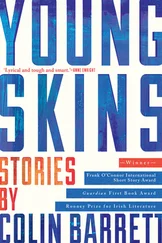Andrea Barrett
Ship Fever: Stories
Portions of this book have appeared previously in the following magazines: “The English Pupil” in The Southern Review; “The Littoral Zone” and “ Soroche ” in Story; “The Marburg Sisters” in New England Review ; “The Behavior of the Hawkweeds” in The Missouri Review. My thanks to those magazines and their editors. “Rare Bird” first appeared in The Writing Path: An Anthology of New Writing from Writers’ Conferences and Festivals (University of Iowa Press); my thanks to them as well.
“The Behavior of the Hawkweeds” was selected for Best American Short Stories, 1995 (Jane Smiley, Guest Editor).
Grateful acknowledgment is also made to the National Endowment for the Arts, for its generous support, and to the MacDowell Colony, for its gift of time and space.
Finally, my thanks to Margot Livesey, Ellen Bryant Voigt, Sarah Stone, and Carol Houck Smith, for their insightful reading and thoughtful suggestions.
The Behavior of the Hawkweeds
For thirty years, until he retired, my husband stood each fall in front of his sophomore genetics class and passed out copies of Gregor Mendel’s famous paper on the hybridization of edible peas. This paper was a model of clarity, Richard told his students. It represented everything that science should be.
Richard paced in front of the chalkboard, speaking easily and without notes. Like the minor evolutionist Robert Chambers, he had been born hexadactylic; he was sensitive about his left hand, which was somewhat scarred from the childhood operation that had removed his extra finger. And so, although Richard gestured freely he used only his right hand and kept his left in his pocket. From the back of the room, where I sat when I came each fall to hear him lecture, I could watch the students listen to him.
After he passed out the paper, Richard told the students his first, conventional version of Gregor Mendel’s life. Mendel, he said, grew up in a tiny village in the northwestern corner of Moravia, which was then a part of the Hapsburg Empire and later became part of Czechoslovakia. When he was twenty-one, poor and desperate for further education, he entered the Augustinian monastery in the capital city of Brünn, which is now called Brno. He studied science and later taught at a local high school. In 1856, at the age of thirty-four, he began his experiments in the hybridization of the edible pea. For his laboratory he used a little strip of garden adjoining the monastery wall.
Over the next eight years Mendel performed hundreds of experiments on thousands of plants, tracing the ways in which characteristics were passed through generations. Tall and short plants, with white or violet flowers; peas that were wrinkled or smooth; pods that were arched or constricted around the seeds. He kept meticulous records of his hybridizations in order to write the paper the students now held in their hands. On a clear, cold evening in 1865, he read the first part of this paper to his fellow members of the Brünn Society for the Study of Natural Science. About forty men were present, a few professional scientists and many serious amateurs. Mendel read to them for an hour, describing his experiments and demonstrating the invariable ratios with which traits appeared in his hybrids. A month later, at the Society’s next meeting, he presented the theory he’d formulated to account for his results.
Right there, my husband said, right in that small, crowded room, the science of genetics was born. Mendel knew nothing of genes or chromosomes or DNA, but he’d discovered the principles that made the search for those things possible.
“Was there applause?” Richard always asked at this point. “Was there a great outcry of approval or even a mutter of disagreement?” A rhetorical question; the students knew better than to answer.
“There was not. The minutes of that meeting show that no questions were asked and no discussion took place. Not one person in that room understood the significance of what Mendel had presented. A year later, when the paper was published, no one noticed it.”
The students looked down at their papers and Richard finished his story quickly, describing how Mendel went back to his monastery and busied himself with other things. For a while he continued to teach and to do other experiments; he raised grapes and fruit trees and all kinds of flowers, and he kept bees. Eventually he was elected abbot of his monastery, and from that time until his death he was occupied with his administrative duties. Only in 1900 was his lost paper rediscovered and his work appreciated by a new generation of scientists.
When Richard reached this point, he would look toward the back of the room and catch my eye and smile. He knew that I knew what was in store for the students at the end of the semester. After they’d read the paper and survived the labs where fruit flies bred in tubes and displayed the principles of Mendelian inheritance, Richard would tell them the other Mendel story. The one I told him, in which Mendel is led astray by a condescending fellow scientist and the behavior of the hawkweeds. The one in which science is not just unappreciated, but bent by loneliness and longing.
I had a reason for showing up in that classroom each fall, and it was not just that I was so dutiful, so wifely. Richard was not the one who introduced Mendel into my life.
When I was a girl, during the early years of the Depression, my grandfather, Anton Vaculik, worked at a nursery in Niskayuna, not far from where Richard and I still live in Schenectady. This was not the only job my grandfather had ever had, but it was the one he liked the best. He had left Moravia in 1891 and traveled to the city of Bremen with his pregnant wife. From there he’d taken a boat to New York and then another to Albany. He’d meant to journey on to one of the large Czech settlements in Minnesota or Wisconsin, but when my mother was born six weeks early he settled his family here instead. A few other Czech families lived in the area, and one of those settlers hired my grandfather to work in a small factory that made mother-of-pearl buttons for women’s blouses.
Later, after he learned more English, he found the nursery job that he liked so much. He worked there for thirty years; he was so skilled at propagating plants and grafting trees that his employers kept him on part-time long past the age when he should have retired. Everyone at the nursery called him Tony, which sounded appropriately American. I called him Tati, a corruption of tatínek, which is Czech for “dad” and was what my mother called him. I was named Antonia after him.
We were never hungry when I was young, we were better off than many, but our daily life was a web of small economies. My mother took in sewing, making over jackets and mending pants; when she ironed she saved the flat pieces for last, to be pressed while the iron was cooling and the electricity was off. My father’s wages had been cut at the GE plant and my older brothers tried to help by scrounging for odd jobs. I was the only idle member of the family, and so on weekends and during the summer my mother sometimes let me go with Tati. I loved it when Tati put me to work.
At the nursery there were fields full of fruit trees, peach and apple and pear, and long, low, glass houses full of seedlings. I followed Tati around and helped him as he transplanted plants or worked with his sharp, curved knife and his grafting wax. I sat next to him on a tall, wooden stool, holding his forceps or the jar of methylated spirits as he emasculated flowers. While we worked he talked, which is how I learned about his early days in America.
Читать дальше
Конец ознакомительного отрывка
Купить книгу












